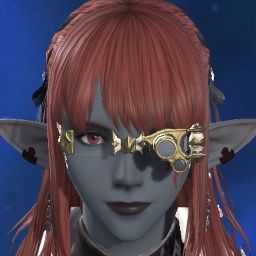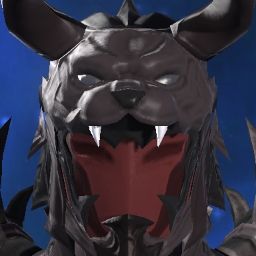When someone *creates* a dead end with done-to-death bait of that low quality, zingers like that are really all they deserve.
As for the talk of Genocide. Is it reductive? Sure, there's more nuance to it than simply that, but I really don't think there's any point in decrying its use in describing events in the plot. The end-game of both the Ascians and Hydaelyn are the intentional wiping out of a specific classification of people to fit an ideal or purpose. The writing is what has gotten us to this point--the point where acts of that scale are what necessitate the survival of one side or the other. Of course, its a fictional fantasy story where circumstances like these would never apply to reality, but it doesn't erase the tangible things these characters have to do to get to that point. Speaking for myself, I certainly don't use it to disregard the numerous layers of moral ambiguity that go behind it, I'm just not going to handwave the scale of what is being done to entire civilizations by using euphemisms. Adults can have adult conversations about things, even in dumb JRPG's.
-
06-06-2023 11:34 AM #191(10)
-
06-06-2023 12:28 PM #192
I also want to add: if you (general you, to be clear) just flat out don't care about the weird writing choices or the moral dissonance, because it's not a topic that interests you or is important to you, or you just plain out don't like the race/faction that was on the bad end of it, or you dislike a prominent character in that faction, that's fine. This is a video game. For example, I absolutely hate the Sylphs and would probably mostly just chuckle a little if they all tragically dropped dead in-universe.
But it also just means there's not really much need for you to chime in, and possibly unintentionally derail, a discussion of people who are interested in those weird writing choices and how it disrupts the narrative for them. For the Sylphs, in the event of their theoretical massacre I can personally think "thank god they're gone and I don't have to put up with them anymore" while also being capable of going "yeah this is kinda weird" if the game's protagonist faction treated it as necessary and even a grimly heroic choice to wipe them out. Or: I'm not personally too worked up over the really hilarious white-washing Solus absolutely gets in Endwalker, but I can acknowledge it was absolutely there, it was pretty cowardly and transparent in light of the character's popularity, and intellectually agree with the points that a better-written version of the story wouldn't have done it. Which means I'm not going to try to invalidate anyone who is, completely rightfully, more bothered by it than I am.
It is, in fact, not that hard to perhaps shrug and indifferently say, "yeah, obviously genocide is always wrong and the writing was inconsistent in a weird way about it," even if you don't spend any more time dwelling on it and think the Ancients are dumb ugly smelly jerks.(11)Last edited by Brinne; 06-06-2023 at 12:33 PM.
-
06-06-2023 12:34 PM #193Player
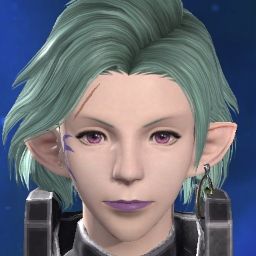
- Join Date
- Sep 2021
- Location
- Solution Eight (it's not as good)
- Posts
- 3,031
- Character
- Ein Dose
- World
- Mateus
- Main Class
- Alchemist Lv 100
I'm realizing that I might be more okay with this because I've had experience with the Shin Megami Tensei series, and realizing that this is essentially their attempt to do similar in a different framework.
Like in mainline Shin Megami Tensei games, I think the intention is to use that mythological context to essentially blow out the scale of a personal quandry to the absolute maximum. And I think that works really well when SMT does it for two reasons:
1. When the scale is so far beyond what a human would be capable of, human scales of justice and morality no longer apply. I like bringing up the flood in the story of Noah for this; it's hard to call him guilty of any human crime for that, so the questions then change and become more conceptual.
And 2. Going that big questions the extremes of a human level of morality. You might generally believe in law and order as far as an average human being can affect that, but how far does that go before you draw the line and stop being comfortable? (Genuinely, Strange Journey's Law path was a bit of a revelation for me there, although I wouldn't exactly call it a masterpiece.)
I definitely feel like that's what they're trying to go for with the Zodiark-Hydaelyn conflict, although the nature of the game and story means they can't center it as much--both in terms of 'it came up several expansions into a story so it can't be the main crux of things', and 'the nature of the game itself means we can't let the player make this decision'. Still, I think it's a laudable effort and mostly gets across the goal and intention, even if it's not perfect. And even then, 'improving' it as a reader would be very difficult, because you have to both keep an even hand and also not 'soften' either side too much; this sort of story doesn't work if the choice is easy. (Which incidentally is why most SMT Neutral endings suck.)
Funnily enough, it's not that I 'don't care about the weird writing choices': it's that I liked them. Although it's probably a bit ironic that I really liked that part but hated Fake Amaurot and Elpis as story sections.(3)Last edited by Cleretic; 06-06-2023 at 12:37 PM.
-
06-06-2023 01:02 PM #194
See, and I completely disagree with you there. I think it's very clear - and the devs (well, Ishikawa, basically) have said as much - that their goal in Shadowbringers and on were to "humanize" the Ascians, and the writing from that expansion onwards bears that out. All explicit framework in Endwalker's script, even, goes out of its way to underscore the Ancients as often mundane in how they go about their business, as like us, as just people. I wrote another post earlier about this:
I think all the power of this story is that it has premises you'd expect to be generalized and mythological - the typical mysterious, mythical precursor race that fell you see in so many fantasy stories, a dime a dozen trope - and did an exceptional job at making them human. Hence, I absolutely loved Fake Amaurot and Elpis in terms of emphasizing those human qualities, because that's what makes this entire narrative special and exceptional to me. The fact that they were capable of world-destroying apocalyptic fantasy nonsense isn't exceptional in this setting. The goblins made a primal capable of destroying the world in the Alexander raids. It's practically mundane in and of itself. Nor are Venat's, or Emet's, capability of deciding their vision for the world and for their people are worth horrific levels of sacrifice exceptional or particularly mythological. Ilberd and Thordan are waving from the Aetherial Sea!This story is not presented as a myth, and Venat is not presented as a God. What happened is something we largely see play out in real-time before us with people we have tea with, help with mundane tasks, all while enjoying their charms and quirks and personality nuances. Much of the pathos of Venat's story is from meeting her as a person, and coming to understand that rather than a God, she was simply a single human person who made decisions on behalf of her vision of what humanity should be and her vision of the greater good for all of life and existence.
The attempted re-painting of our encounters of the Ancients, and the actions they committed, both for good and ill, as 'simple myths' or 'ancient history' always feel weird to me, because this is a video game where there is no meaningful distinction between the NPCs we talk to and accept quests in the 'present' and the NPCs we talk to and accept quests from in the 'past' (which we can access simply by clicking the teleporation button.) Either way, in our immediate moment, we talk to them, get annoyed, laugh at them, engage with them equally as pretend-living people in front of us. Even beyond one of Shadowbringers's prime writing goals being stated explicitly as "humanizing the Ascians," Endwalker itself is as firm as it can be in the final word on the Ancients through things like the DoH quests, or G'raha's remark in Ultima Thule: they were simply people.
"God" gets away with causing the great flood because he is a legitimate god, fundamentally inaccessible and incomprehensible. (And even then, opinions vary - I'm not religious myself, and the suggested nature of most 'gods' in theism is one factor as to why.) Venat is (and the rest of the Ancients, and the Ascians) explicitly a relatable human person, so suggesting we should downplay the decisions she, or the rest of them, made as relatable human people by acting otherwise is very strange and does the story a disservice in and of itself.
To be clear, I don't think you're wrong for liking that style of story, and there are times when that kind of thing can appeal to me too. Being swept away by sheer incomprehensible scale and atmosphere can be an incredible experience. But I could not disagree more in terms of trying to project that mindset and framework onto this specific story, and think all evidence is that that's not how we're even meant to process it. Thus, the dissonance.(16)Last edited by Brinne; 06-06-2023 at 01:10 PM.
-
06-06-2023 04:16 PM #195Player
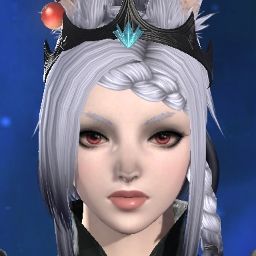
- Join Date
- Jul 2015
- Location
- Meracydia
- Posts
- 3,883
- Character
- Lythia Norvaine
- World
- Gilgamesh
- Main Class
- Viper Lv 100
There's nothing wrong with having a critical discussion on the topic of genocide if you apply the word appropriately. As an example, when Elidibus releases chemical weaponry in the midst of the clash between his own Garlean forces and the Eorzeans during the Eighth Umbral Calamity, an act which wipes out most of the human population of the continent, it's unambiguously correct to describe this act as genocide. The use of chemical weaponry, even on its own, is explicitly classified as a war crime in human society. Likewise, when Emet and his Convocation launch into their crusade to eradicate the entire human population of seven different worlds on the basis of the fact that they were 'inferior' and thus less deserving of life, the coding of this act in the text is pretty much unambiguous.
The crux of the issue with the Sundering is that we don't actually have any frame of reference for what it actually entails. It doesn't kill, and we have no real world analogy for losing our magical powers. So now we come to why someone would bring up the topic of genocide in the context of the Sundering, based on the limited information that we do have about it. Are we talking about killing off a group of people? No. We've already established that the Sundering doesn't kill its target, from Emet's demonstration in the Ocular.
So now we come to genocide in the context of 'cultural erasure'. Hostile intent is actually a fairly critical part of the definition, and with very good reason. Cultures are not static and change over time (especially when you're talking about a time period of twelve thousand years). Even the simple act of people emigrating to a new area can give rise to new cultures are very different from the original. Changing a country's governance can have a profound impact on its culture as well. These are not 'acts of cultural erasure'.
Even if we look within Amaurot's history, the decision to summon Zodiark vastly altered the local culture. The Amaurotine people went from being a very secular people to one that worshipped Zodiark as a God and offered Him human sacrifices. Do we then make the claim that the Convocation committed genocide against the Amaurotine people by altering their culture? Yet intuitively we know this doesn't make sense, because the Convocation members themselves are Amaurotine, and aren't acting with hostile intent towards themselves. The same is true with Venat, as an Amaurotine herself. An internal political clash over the ideological values of your own people doesn't constitute genocide. Rebellion to remove the societal control of an oppressive government doesn't constitute cultural erasure. The people of Eorzea are the descendants of the Amaurotine people, twelve thousand years later.
So why does the word genocide get misused in this context? The answer is simple. Equivocation. As was stated earlier, the etymological root of the suffix '-cide' means 'to kill'. You end up twisting the narrative into one in which Venat 'kills' the world (despite the story itself pointing to the contrary), bringing her group down to the level of the Convocation. It allows you to paint both groups under the same brush in a thinly veiled 'gotcha'.(2)Last edited by Lyth; 06-06-2023 at 04:33 PM.
-
06-06-2023 04:30 PM #196Player
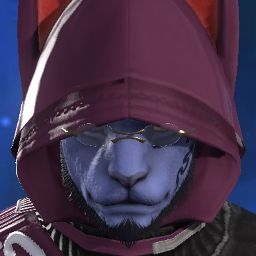
- Join Date
- Oct 2013
- Location
- New Gridania
- Posts
- 5,465
- Character
- Hayk Farsight
- World
- Exodus
- Main Class
- Dark Knight Lv 100
Something that popped into my head...it was mentioned before (by Yoshi-P?) that we still don't know how Hydaelyn erased people's memories of the WoL before ARR's start. This makes me question just how the memory erasure during the Sundering actually worked. Was it indeed an effect of the Sundering itself, or was something else in play at the same time to guarantee people's memories were completely wiped of the past? Hopefully something that gets answered when the final alliance raid hits in 6.5. Not that a full "people's memories were erased after the fact" would make things much better, it's just something I'm genuinely curious about.
(2)
-
06-06-2023 04:44 PM #197Player

- Join Date
- Feb 2022
- Posts
- 5
- Character
- Roselin Sweetrose
- World
- Louisoix
- Main Class
- White Mage Lv 90
Genocide actually can come from within a nation too. And we actually do have a description of the Sundering (written by Ishikawa) which is this one: https://i.imgur.com/CWFRPdy.png
Factually speaking, the Sundering resulted in the total destruction of the Amaurotine culture.
Why you want to call those other things "genocide" yet refuse to apply the term to an equally horrific and destructive event is beyond me. And we do have real world analogies for an event which forces a people to forget their culture and language: the thing I was subjected to, being taken away by force from my family as a child and subjected to forced cultural assimilation and religious conversion, my cultural identity was completely and irreversibly fractured by that event.
And also genocide does not require murder to be a genocide
"It is intended rather to signify a coordinated plan of different actions aiming at the destruction of essential foundations of the life of national groups, with the aim of annihilating the groups themselves. The objectives of such a plan would be disintegration of the political and social institutions, of culture, language, national feelings, religion, and the economic existence of national groups, and the destruction of the personal security, liberty, health, dignity, and even the lives of the individuals belonging to such groups. Genocide is directed against the national group as an entity, and the actions involved are directed against individuals, not in their individual capacity, but as members of the national group." - Raphael Lemkin, "Axis Rule in Occupied Europe"
The Sundering undeniably destroyed them as a national group, and Venat knew this would be the result and intended it because, as said by Yoshida in an interview, she thought her people's culture was leading them down a path of stagnation, to the same fate as the Nibirun. The intent was clearly to purge the culture in question from existence since it was the culture she had a problem with.(12)
-
06-06-2023 04:52 PM #198
Their culture was a lost cause after they started planning the third sacrifice anyway.
(1)
-
06-06-2023 04:58 PM #199
And the "unironic use of historical colonialist-genocide apologism rhetoric deployed for the sacred purpose of defending the writing in a video game" rears its ugly head again, only after the thread has already pointed it out and discussed it, so we can now, unfortunately, take "ignorance" off the table of the plausible deniability for those who use it.
(9)
-
06-06-2023 05:17 PM #200




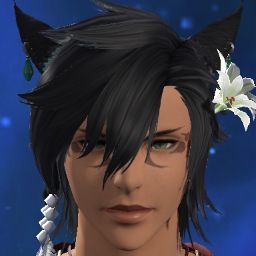

 Reply With Quote
Reply With Quote



